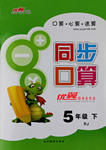题目内容
In China, the National Holiday is a big festival and it is to celebrate the founding of the People's Republic of China by Mao Zedong in 1949.Besides from the Spring Festival, the National Holiday is the only other week-long public break from school and work.
As one of the only opportunities for workers to go home, visit their families or to travel around the country, all hotels, tourist attractions, trains, buses and airplanes around the country are completely packed with holidaying Chinese people.
Are you sorry for not traveling during the National Day ? If you stay at home at that time, I think you are very lucky. Why? Because there are too many people everywhere. In many places of interest in China, it’s too crowded to do anything.
Look at the picture. It was too crowded on the Great Wall on October 1st, 2012. You even couldn’t take photos for you or your friends. All that we could see were people. It was reported that there were about twenty people per meter on the Great Wall. My friends told me they could see nothing but many people on the Great Wall. “We couldn’t walk if the people in front of us didn’t walk,” he said. He showed us a photo on the Great Wall. In the photo, we hardly found him out, there were too many people.
So some people give the advice that we should not have the gold week any more. But other people say no about this advice. What’s your idea of it? Are you sorry now for not traveling during the gold week? I love staying at home more than traveling next National Day.

小题1: How did the writer feel about staying at home on National Day?
小题2:How many days can people have a break on the Spring Festival.
A. 5 days B.7 days C.10 days D 15 days
小题3:Which of the following is TRUE about the Great Wall on National Day?
小题4:Where do you think is the article from?
As one of the only opportunities for workers to go home, visit their families or to travel around the country, all hotels, tourist attractions, trains, buses and airplanes around the country are completely packed with holidaying Chinese people.
Are you sorry for not traveling during the National Day ? If you stay at home at that time, I think you are very lucky. Why? Because there are too many people everywhere. In many places of interest in China, it’s too crowded to do anything.
Look at the picture. It was too crowded on the Great Wall on October 1st, 2012. You even couldn’t take photos for you or your friends. All that we could see were people. It was reported that there were about twenty people per meter on the Great Wall. My friends told me they could see nothing but many people on the Great Wall. “We couldn’t walk if the people in front of us didn’t walk,” he said. He showed us a photo on the Great Wall. In the photo, we hardly found him out, there were too many people.
So some people give the advice that we should not have the gold week any more. But other people say no about this advice. What’s your idea of it? Are you sorry now for not traveling during the gold week? I love staying at home more than traveling next National Day.

小题1: How did the writer feel about staying at home on National Day?
| A.He believed it was interesting to stay at home on National Day. |
| B.He believed it was boring to stay at home on National Day. |
| C.He felt lucky to stay at home on National Day. |
| D.He felt sorry to stay at home on National Day. |
A. 5 days B.7 days C.10 days D 15 days
小题3:Which of the following is TRUE about the Great Wall on National Day?
| A.You could find yourself easily on the photos you took that day |
| B.You could walk as you like on the Great Wall |
| C.There were about 30 people per meter. |
| D.All that could you see on the Great Wall were people. |
| A.www.chinabus.com | B.www.movies123.com |
| C.www.chinatourist.com | D.www.storyhouse.com |
小题1:C
小题2:C
小题3:D
小题4:C
试题分析:这篇短文中作者主要讲述了国庆长假期间各旅游景点人满为患的现状,并且作者表达了自己的观点,与其出去看“人海”;不如呆在家里好好休息。
小题1:细节理解题。根据短文第三段第二句 If you stay at home at that time, I think you are very lucky. 可知作者认为如果没有出去旅游而是呆在家里是幸运的;故选C。
小题2:推理判断题。根据短文第一段Besides from the Spring Festival, the National Holiday is the only other week-long public break from school and work.可知,除了春节之外,国庆节是另一个唯一的一周之久的长假;由此可推知,春节的假期应该在一到两周之间,即C项比较吻合;故选C。
小题3:推理判断题。根据短文中In the photo, we hardly found him out, there were too many people.
可知要想从照片中找出好友是不容易的,A错误;作者好友的话“We couldn’t walk if the people in front of us didn’t walk,” 可表明B项的说法错误; It was reported that there were about twenty people per meter on the Great Wall.据报道在长城上每米距离的人数在20左右而不是30,C项错误;第四段第四句话All that we could see were people. 可知D项的描述是正确的;故选D。
小题4:细节理解题。短文内容主要就是描述了国庆长假期间长城等旅游景点人满为患的情况,所以本文最可能的出处就是中国旅游网站,而不是中国公交、电影123或故事书屋等网站;故选C。

练习册系列答案
 优翼小帮手同步口算系列答案
优翼小帮手同步口算系列答案
相关题目